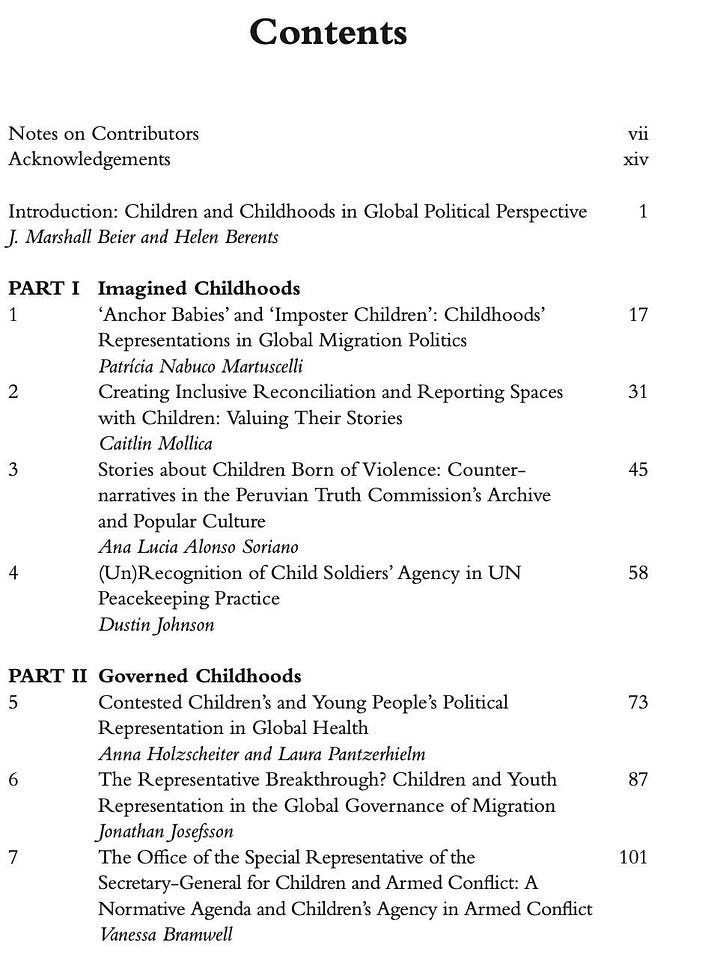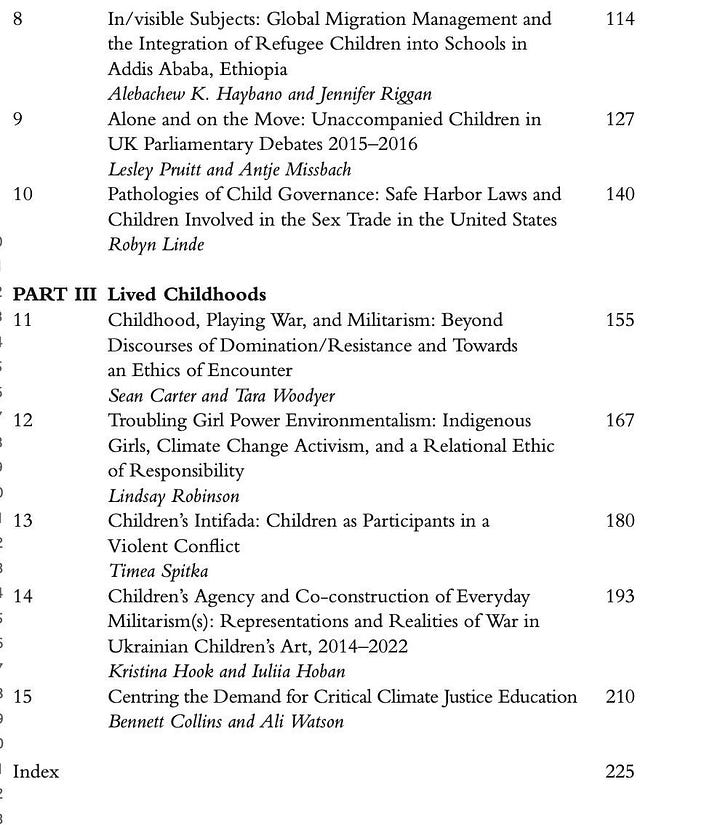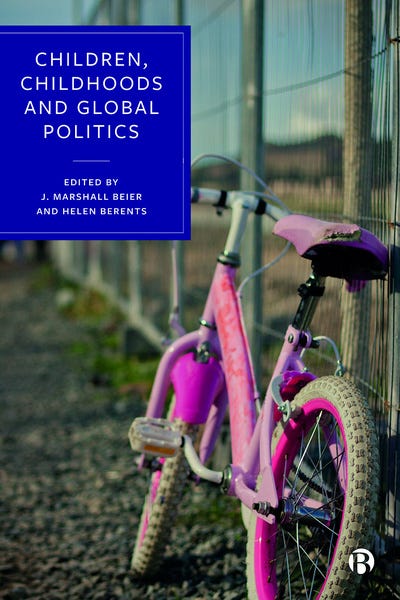In 2023 Prof J Marshall Beier and I published our edited collection titled Children, Childhoods and Global Politics. In it we brought together an amazing group of more than twenty contributors from a dozen different countries across fifteen chapters; and their original research projects are similarly diverse in the particular issues they cover and the empirical contexts in which they are located.
This month Bristol University Press has released the book in paperback, making it more accessible and a bit more affordable for those interested! [see note at end of post]
When it was originally published in hardback, I hadn’t started this Substack, so I want to take this opportunity of its re-release in paperback to share my enthusiasm for this project and to link my interrelated interests in ‘youth’ and ‘children’ (and the broader political categories of youthhoods and childhoods).
Why a book on children, childhoods and global politics?
I have always been interested in age as an under-attended vector of identity and political categorisation in global politics. While youth are often vilified as ‘dangerous’ and ‘delinquent’ or reified as future hope and promise, children are generally not given as much recognition for their agency in any capacity. They are not seen as even possible actors by much of traditional scholarship in international relations.
I’ve been fortunate over my career to date to benefit from the collegiality and friendship of Marshall. As one of the foundational scholars in international relations who has been attentive to the political work that children and childhoods do (and have done to them), I’ve learned a lot from Marshall that informs my own scholarship. Bringing together this book as co-editors was a joy from start to finish!
Both Marshall and I are located within the discipline of International Relations, but consistently have drawn on Childhood Studies and other disciplinary insights in our own work on children and childhoods. As participants in the engaged and growing community of International Relations scholarship around issues of children and childhoods, we were keen to draw together some of the unique but complementary lines of inquiry being pursued by both early career and more established colleagues working in this space.
Previous work has established that children and childhoods are not new, but rather are newly noticed in international studies. Thus, we wanted to get on with the business of doing the work of revealing what it means to recognise childhood as already a constituent part of our subject matters and present in the ways we theorize them.
Structure of the Book
You can read our introduction to the book available here.
After our introductory chapter, contributions are organised into three parts: “Imagined Childhoods”, “Governed Childhoods”, and “Lived Childhoods”. From migration to health, from truth telling to UN peacekeeping; and drawing variously on parliamentary debates, institutional documents, children’s art, popular culture, and interviews and ethnographic work, authors demonstrate the breadth of sites where questions of children and childhoods emerge.


This book has been a soul-sustaining project over the past three years amidst a global pandemic & upheaval, and we're incredibly grateful to our amazing authors who met in virtual workshops at all timezones, gave feedback, and contributed to the success of the volume.
The world is very heavy at the moment and I am holding room for both this joy of this project, and for the agony of what we are all witnessing. It remains as urgent as ever that we pay attention to children in global politics, and I am very grateful to our authors who continue to teach me how to do this.
[A note that if you sign up for Bristol University Press’s newsletter you get 25% off all purchases: https://bristoluniversitypress.co.uk/signup-bup-pp]
If you want to read more scholarly work on children, childhoods, and questions of peace and security, Marshall has recently co-edited (with Jana Tabak) an Interventions section in the journal Critical Studies on Security with some amazing contributions from leading scholars to mark 10 years since the publication of the groundbreaking special issue in 2015. You can read the introductory essay here.
I have a piece in the collection titled “(Re)imagining childhood: provocations for a secure world beyond images of dead children” available here. And all contributions can currently be found in the ‘latest articles’ section of the journal site (ahead of the numbered issue coming out soon). As always if you are interested and can’t access it due to paywalls please reach out; always willing to help with this!





